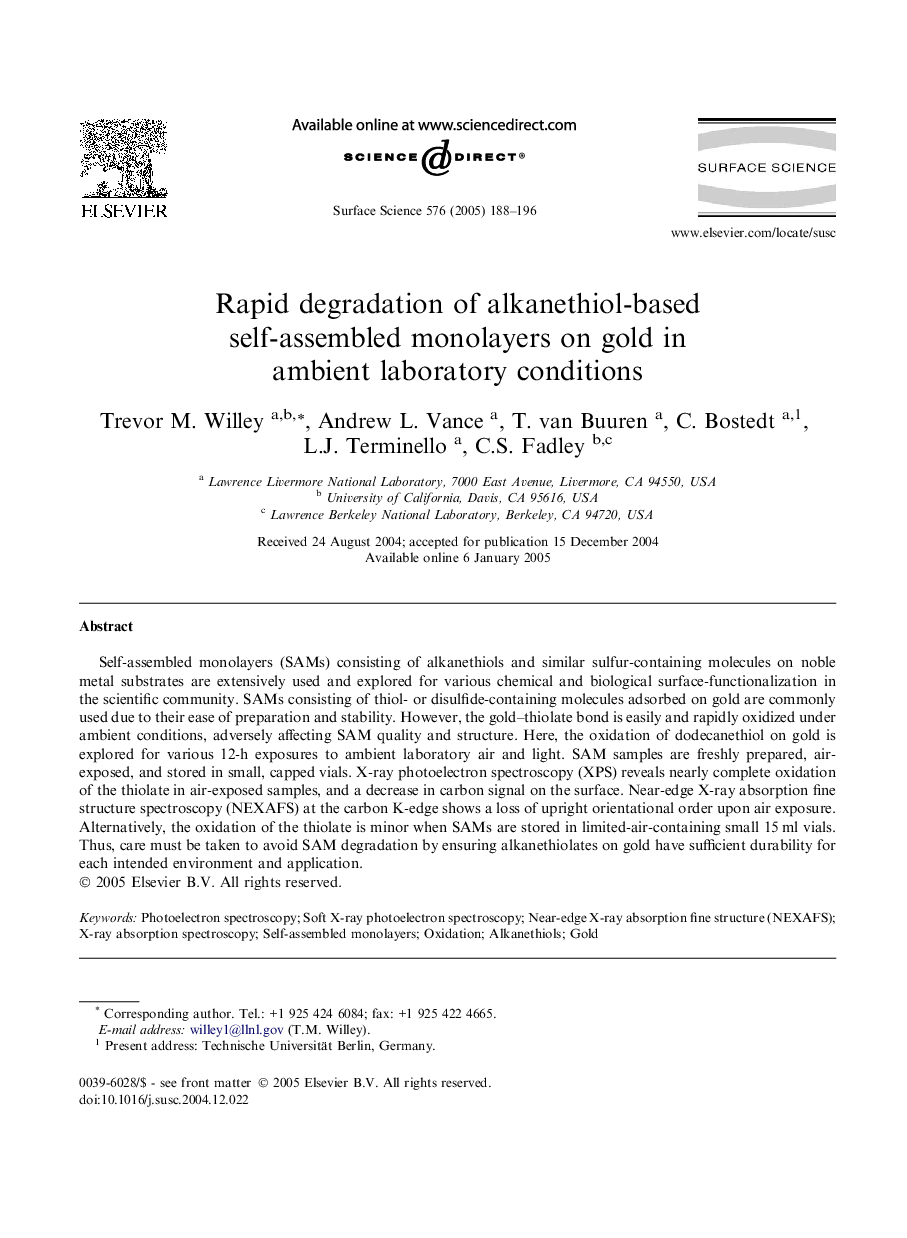| Article ID | Journal | Published Year | Pages | File Type |
|---|---|---|---|---|
| 9595138 | Surface Science | 2005 | 9 Pages |
Abstract
Self-assembled monolayers (SAMs) consisting of alkanethiols and similar sulfur-containing molecules on noble metal substrates are extensively used and explored for various chemical and biological surface-functionalization in the scientific community. SAMs consisting of thiol- or disulfide-containing molecules adsorbed on gold are commonly used due to their ease of preparation and stability. However, the gold-thiolate bond is easily and rapidly oxidized under ambient conditions, adversely affecting SAM quality and structure. Here, the oxidation of dodecanethiol on gold is explored for various 12-h exposures to ambient laboratory air and light. SAM samples are freshly prepared, air-exposed, and stored in small, capped vials. X-ray photoelectron spectroscopy (XPS) reveals nearly complete oxidation of the thiolate in air-exposed samples, and a decrease in carbon signal on the surface. Near-edge X-ray absorption fine structure spectroscopy (NEXAFS) at the carbon K-edge shows a loss of upright orientational order upon air exposure. Alternatively, the oxidation of the thiolate is minor when SAMs are stored in limited-air-containing small 15Â ml vials. Thus, care must be taken to avoid SAM degradation by ensuring alkanethiolates on gold have sufficient durability for each intended environment and application.
Keywords
Related Topics
Physical Sciences and Engineering
Chemistry
Physical and Theoretical Chemistry
Authors
Trevor M. Willey, Andrew L. Vance, T. van Buuren, C. Bostedt, L.J. Terminello, C.S. Fadley,
